Rules of conduct in the theater: features of etiquette

The theater has long been a favorite leisure activity. Going to the theater was like a holiday, for this occasion, beautiful ladies and their gentlemen put on their best outfits.
The theater followed the appropriate rules of conduct, and some of them do not lose their relevance today. The theater is a treasure trove of culture and therefore it is especially important to observe etiquette while being there.
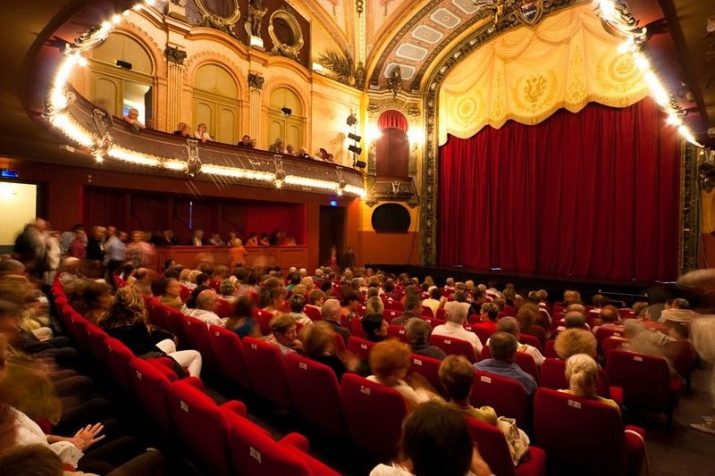
Peculiarities
Theater is a special place for art lovers. Each nation has its own theatrical traditions. Love for this art form lies not only in frequent visits to performances, but also in adherence to the rules of etiquette.
First of all, you should not eat foods with a pungent smell before visiting. For example, dishes with onions or garlic.


In addition, it is important to remember: using perfume immediately before the start of the theatrical act is strongly discouraged. Even the most expensive and high-quality perfumes can cause headaches or allergies in people around you indoors.


On the eve of going to the theater, be sure to think about your wardrobe. Clothes don't have to be casual. If a woman has planned to attend an event in tandem with a companion, it is best to discuss clothing options the day before. Styles and colors need to blend harmoniously to make them look like a couple.

How to dress?
The choice of wardrobe for a social event must be approached very scrupulously.
In the modern world, it is no longer necessary for ladies to wear a floor-length evening dress, and a tuxedo for gentlemen. Men can opt for a formal suit in dark color, choosing a tie and a white shirt.And women can complement their look with various fashion accessories. The main rule is not to overdo it and look appropriate.


Sportswear is not acceptable for visiting cultural sites. Hot pink sundresses and floral skirts are also not suitable for the public. A monophonic dress looks win-win.
For men, it is permissible to visit the theater in office clothes, if it means trousers, a jacket and a shirt in neutral colors. The presence of a tie is not necessary in this case.
For a long time, denim clothing for attending cultural events was considered bad form. Now, when not only work clothes are sewn from denim, but also beautiful products of classic cut, the appearance in the theater hall in denim clothing is allowed, but still not approved by everyone.
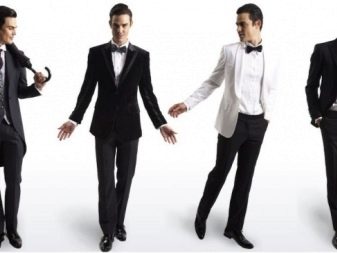

On the day of the premiere of a theatrical performance, it is worth appearing in the most festive attire.
How to behave as an adult?
In order not to spoil the holiday from visiting the performance, neither yourself nor the assembled audience, it is necessary to observe theatrical etiquette. The culture of behavior in the theater is in many ways similar to the culture of formal receptions.


Before the show
It is worth coming to the show at least a quarter of an hour before the start of the program. If you are late, then you need to wait for the intermission and then take your seat.
When a man goes to the citadel of art together with a companion, he needs to remember several important rules.
A man enters the premises, presenting tickets or invitations for control. After checking, the tickets are kept until the end of the performance.

It's no secret that a theater always starts with a coat rack. Observing the norms of etiquette, a man must help his companion to take off her outer clothing, then take off her coat. The numbers obtained from the cloakroom attendant are usually kept by the gentleman in the pocket of his jacket.
It is considered indecent to linger in front of the mirror and correct your hair. If you need to fix your makeup, it's best to go to the restroom.

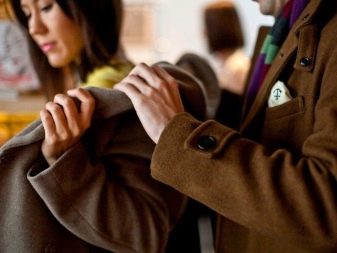
Before stepping into the hall, they must turn off their phones so as not to distract neighbors and actors.
A man must enter the hall first himself, then his lady. Then he shows his companion the way to the assigned places. As you move along the row, quietly apologize for the inconvenience in front of the people sitting in this row. The gentleman sits down in a chair only after the woman takes hers. Most often, the man sits to the left of the lady.
According to the rules of theatrical etiquette, you need to occupy chairs until the third ring.

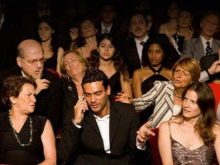

If the selected seats are in the center of the hall, then you should try to take them in advance, so as not to distract the audience at the edge of the row. There are situations when a person discovers that his chair is mistakenly occupied. In this case, you must present your ticket and intelligently ask to give up your seat.
Sitting imposingly, legs apart, resting on the back of the chair in front and occupying two armrests at once is strictly not allowed.


During
During the game, the artists should not interfere with those present with conversations, rustle with packages or candy wrappers.
It is not worth discussing the performance of the actors and the behavior of the people present. Remember that it is the theater staff's responsibility to keep order and reprimand noisy audiences.
Theatrical binoculars are intended only for observing the performance on stage, therefore never look at the people around him.
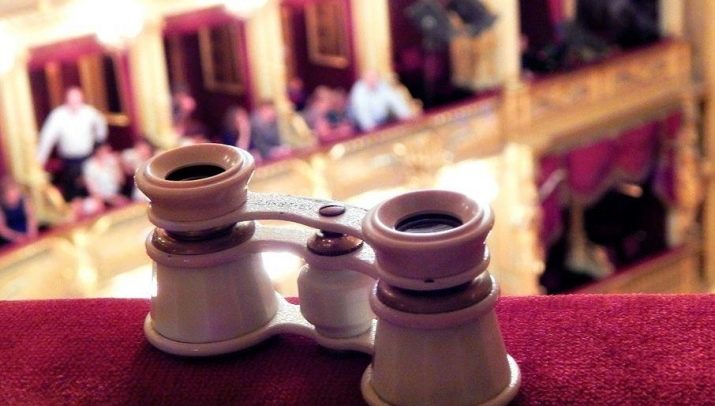
Even if it is very hot in the auditorium, do not use the program as a fan. If you are not feeling well, it is better to reschedule your visit to the theater. After all, a cough and a runny nose will cause great discomfort to the public.
Leaving the hall in the middle of the performance is considered bad manners. Try to wait until intermission.


During the intermission, someone prefers to wait for the next action without leaving the hall, while someone prefers to walk to the buffet.During a break between theatrical performances, the exchange of impressions is allowed, but it is better to do this in a low voice, practically in a whisper. If a woman during the intermission decided to be in the hall, then the gentleman should stay with her. If it becomes necessary to leave, then the man is supposed to apologize and only after that to be absent for a while.
Do not forget about the applause. After all, this is the best award and gratitude for artists.
It is supposed to applaud after the curtain has been lifted, after difficult games, at the exit of a famous actor, as well as after the completion of each action.

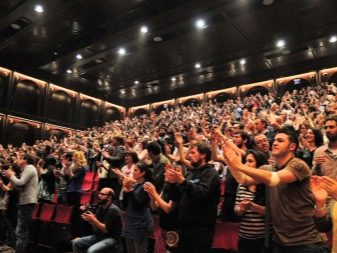
If the theatrical scene did not make the expected impression, it is still important to thank the actors with your applause. If you like the performance, then emotions are expressed with prolonged applause and standing ovation. Often, after an impressive theatrical performance, enthusiastic spectators ask the artists to perform "encore" and repeat a dance or aria. This is appropriate in music and opera theater.
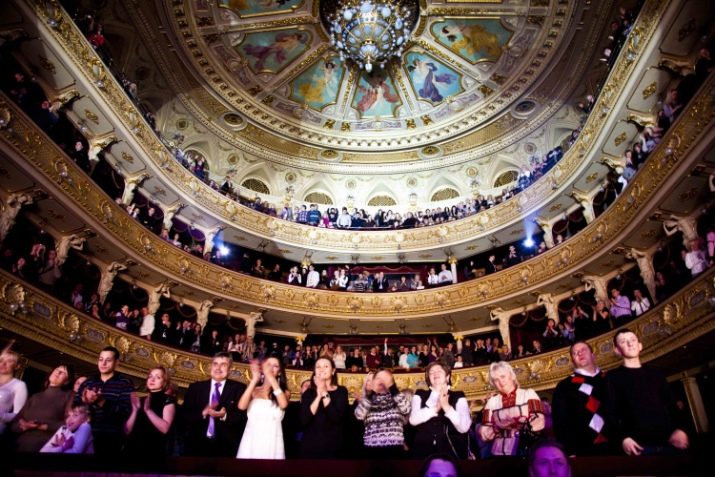
After graduation
You can express gratitude to artists by giving flowers after the end of the performance. It is allowed to add a greeting card with wishes to the bouquet. A bouquet of flowers is handed over to the theater employee, who hands it to the artist on stage or takes it to the dressing room. Presenting bouquets from anonymous donors is not quite a decent gesture and a violation of ethics.

There is no need to rush to the wardrobe before the end of the action and the artists' bowing out. You should always wait for the moment when the curtain goes down and only after that you can leave the auditorium.
If you know that due to certain circumstances you will need to leave the theater before the end of the production, then the last theatrical action is watched from the balcony. Thus, you will leave without disturbing anyone.
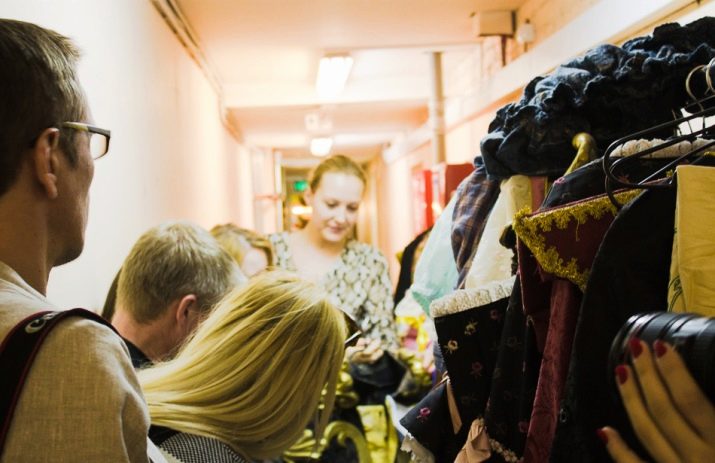
Often, after the end of the performance, a long queue forms at the wardrobe. To usefully pass the time while waiting for your clothes, you can go to the lobby and wait there for your turn, talking about the past event. Having received the clothes, the man initially puts on a coat, then gives the lady a raincoat or fur coat. After the performance, the gallant gentleman must escort his companion home.

Memo for children
Nowadays, theaters often stage performances for the smallest spectators. All babies from the age of two are allowed to visit them. Children of this age category are impressed by the incendiary dances and beautiful costumes of the artists. Of course, the norms of behavior during cultural events apply more to adults, but they should pass them on to their children. Children and adolescents attending the theater develop aesthetic taste faster.

Before attending a performance, be sure to tell the children about the theater.
It is always important to consider the child's day regimen. It is advisable to purchase tickets for the time when the baby will be well-slept and well-fed.
A small viewer during the performance of the actors can react unpredictably to the fairytale hero. Therefore, parents should be prepared that the child may cry and will have to hastily leave the hall so as not to interfere with the artists and spectators.
Now let's study in more detail the rules of behavior in the theater of school-age children. As a rule, a group of children on cultural trips is accompanied by a teacher. He must competently organize the children and be an authority for them.

Children, like adults, should dress festively to the theater. Clothes should be neat and of course ironed.
They come to the theater in advance, for this, with a margin of time of 30-40 minutes, you need to leave your home or school. Once in the building, they go to the cloakroom and hand over their outerwear. The received number must be put into your pocket so as not to lose it.
You need to enter the auditorium without noise and in turn. Sitting down in your places, do not disturb the people present in the room.


During a theatrical scene, it is strictly forbidden to shout, wave your arms.You can only leave the hall after the end of the performance and the closing of the curtain.
Only after the agreement of the manager is it allowed to go to the wardrobe. You cannot touch the paintings or monuments located on the territory of the building.
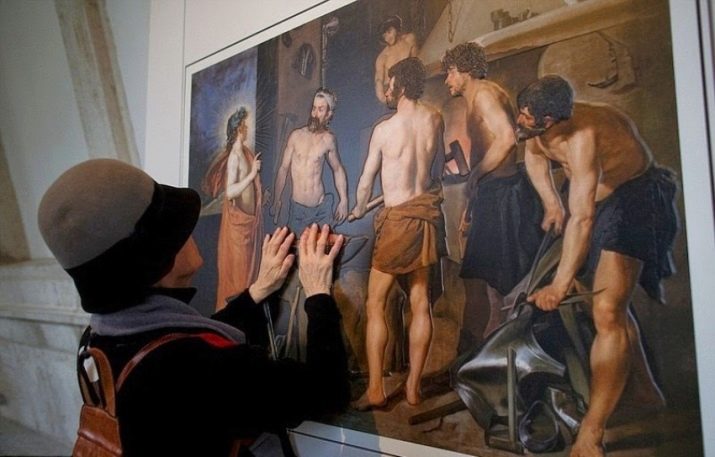
The same ethical standards apply to children who come to the theater with friends or family members. The above memo will allow your children to be polite and well-mannered when getting to know the world of art.


What shouldn't you do?
In places such as music, drama and opera houses, certain actions that are contrary to the rules of etiquette must not be performed.
Before starting the show, turn off your phone or set it to silent mode. Otherwise, a sudden phone call will embarrass you in front of other viewers.

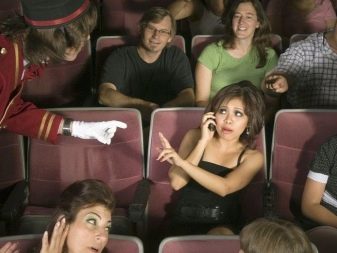
Don't take food to the auditorium. After all, during the intermission you can visit the buffet to satisfy your hunger.
Do not take bulky items into the hall, they should remain in the dressing room. It is permissible to have a theater program and binoculars with you, additionally for women - a small purse in their hands.
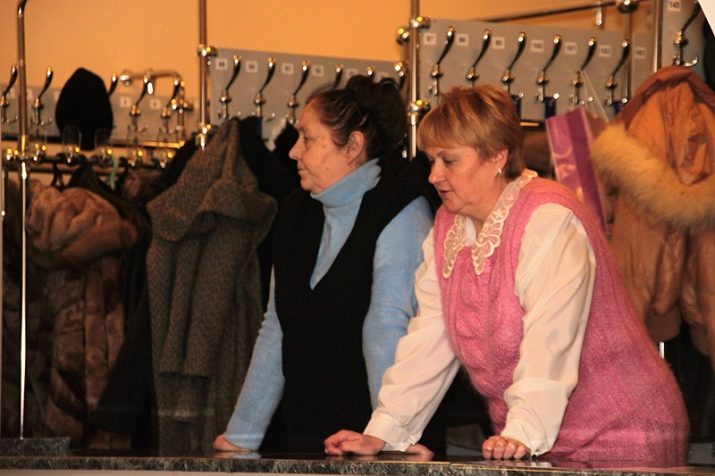
Never talk to your neighbor during a performance. It is better to share your emotions during the intermission or after the end of the production.
Do not use theatrical binoculars to view people in the room. There is no need to put foreign objects on the edge of the balcony. Indeed, with one awkward movement, they will fall on the audience sitting in the stalls.
Never throw flowers on stage.

For information on how to behave properly in the theater, see the next video.








